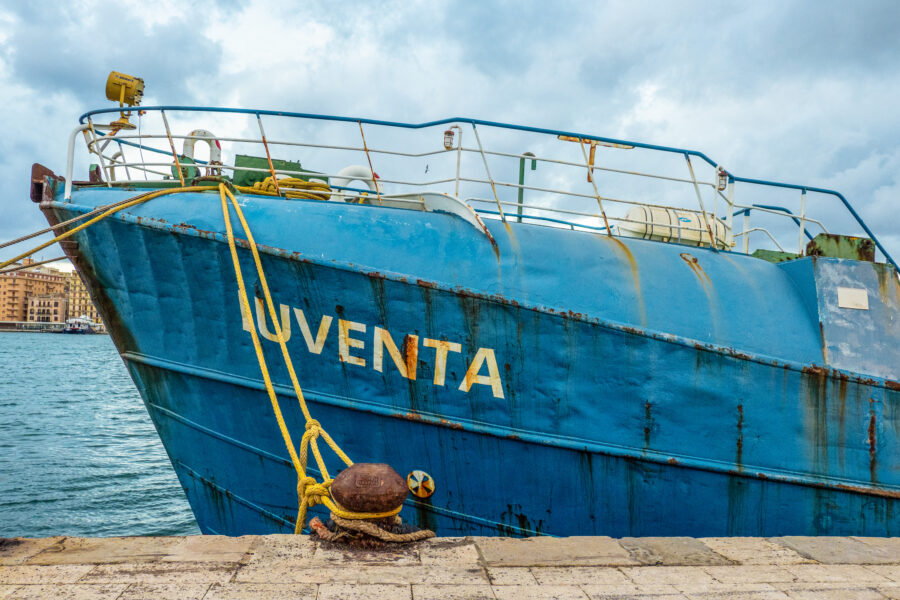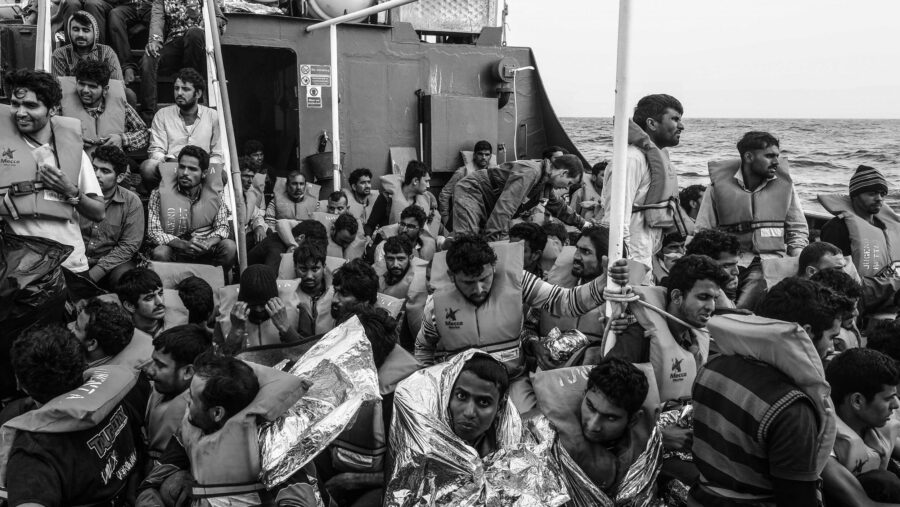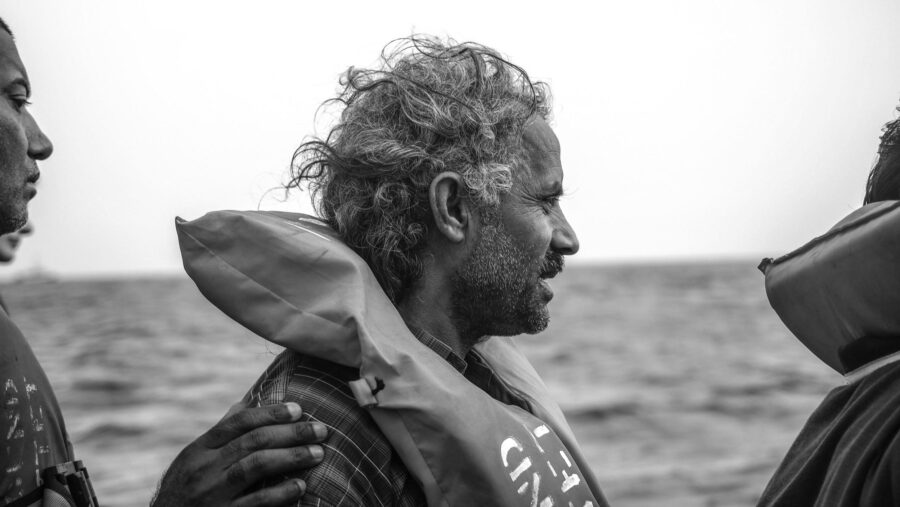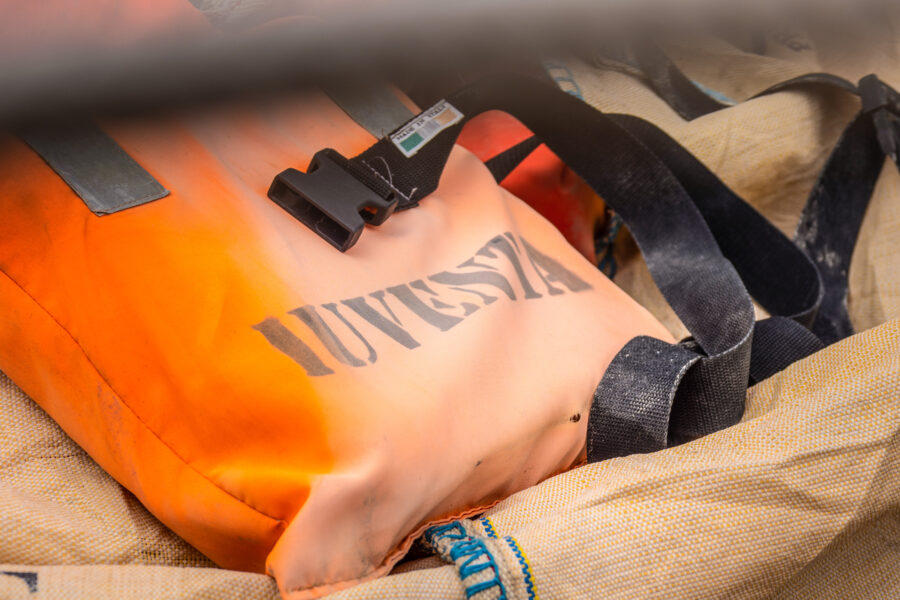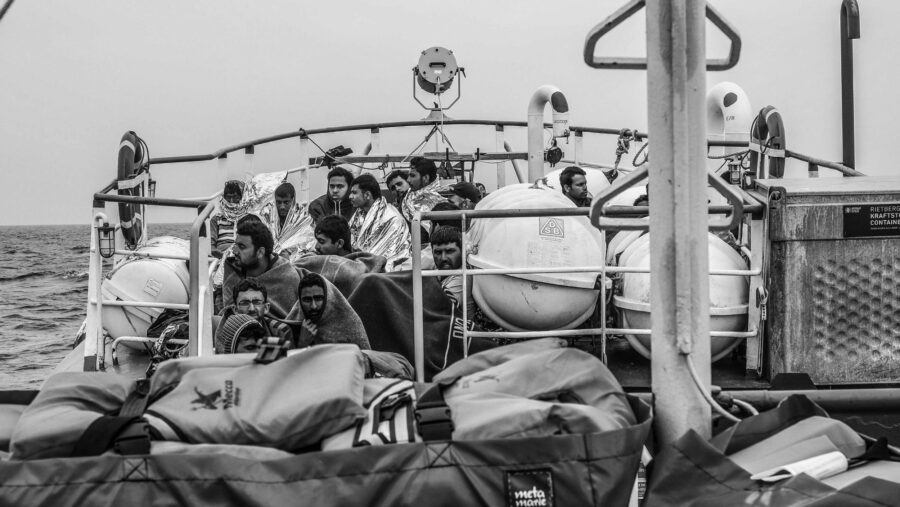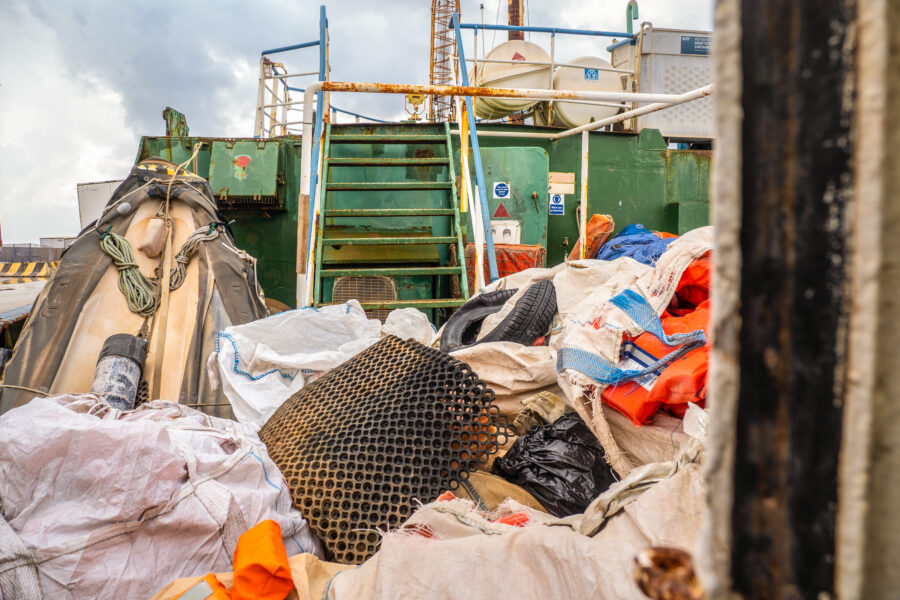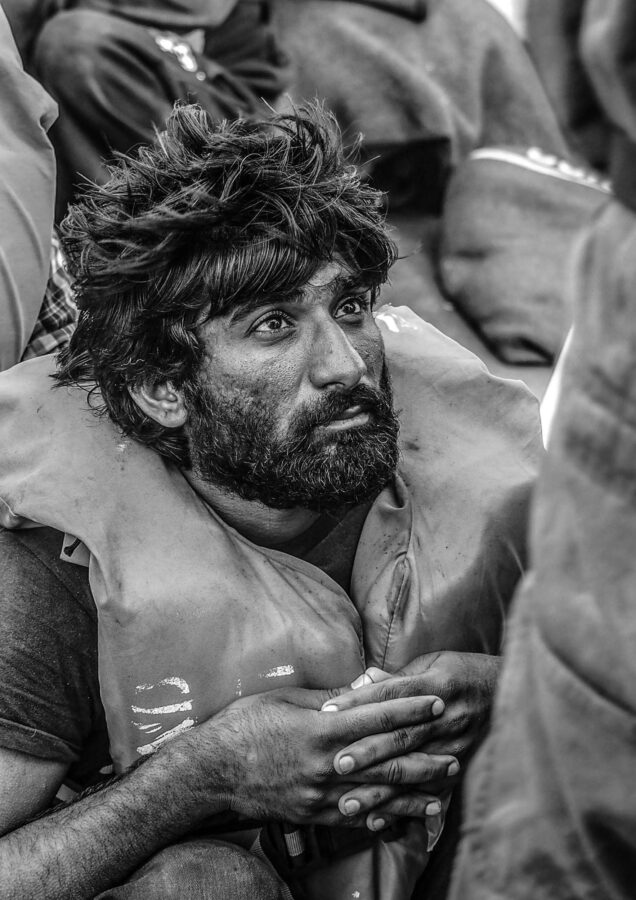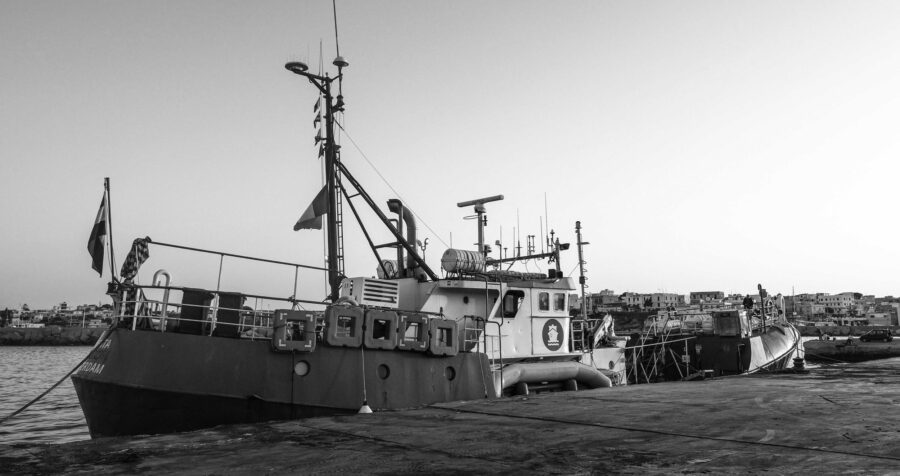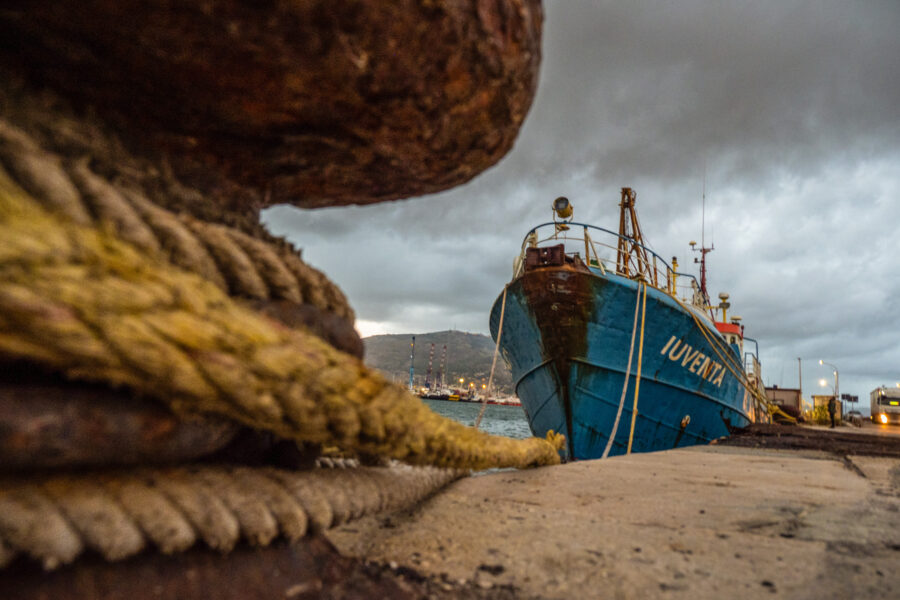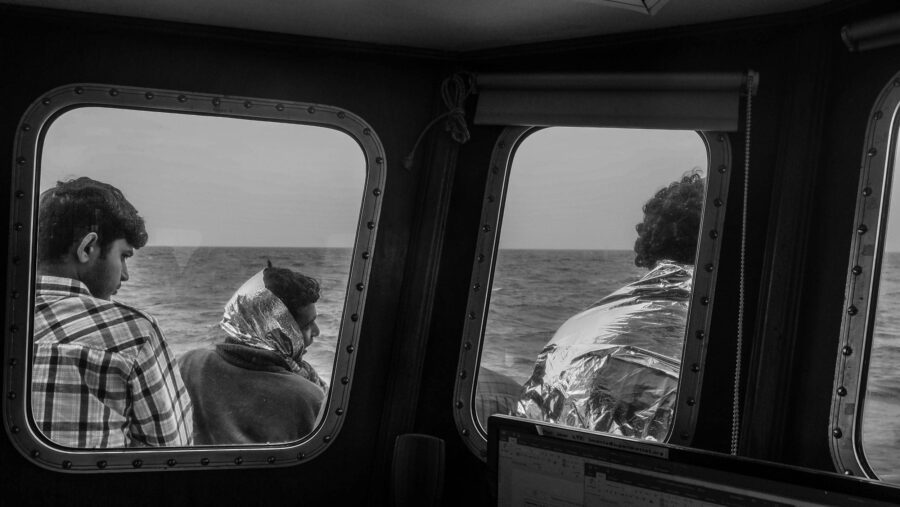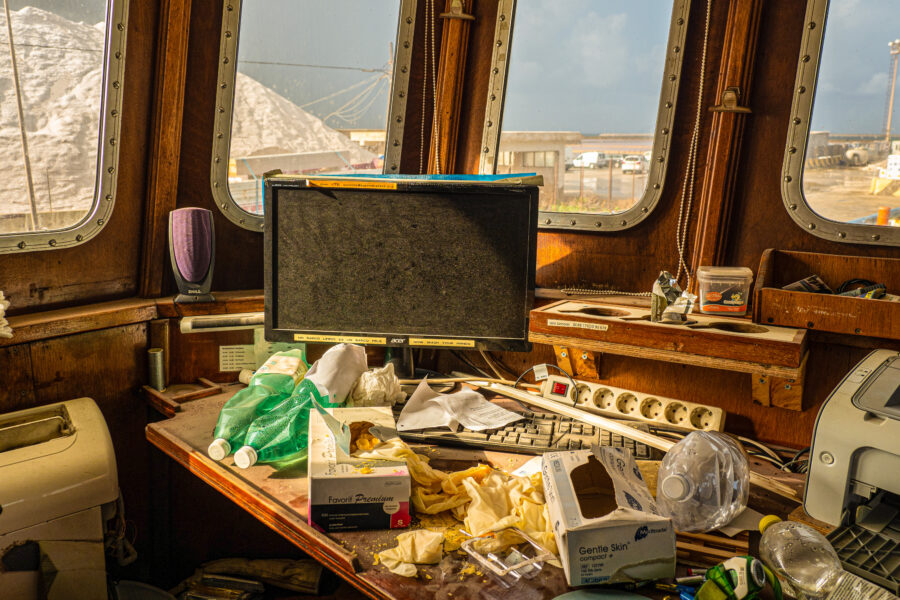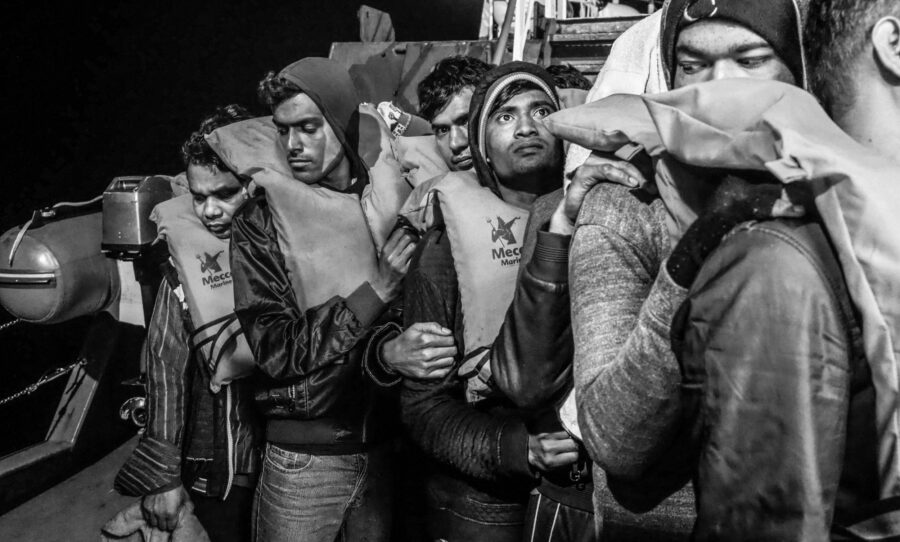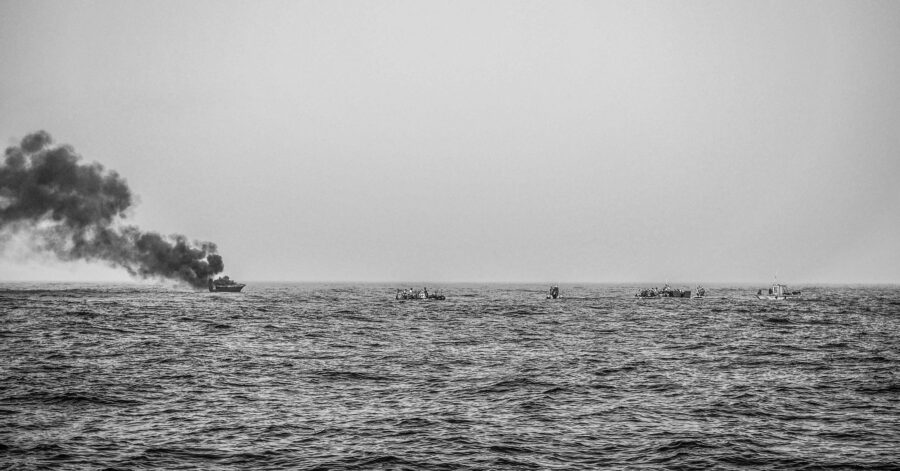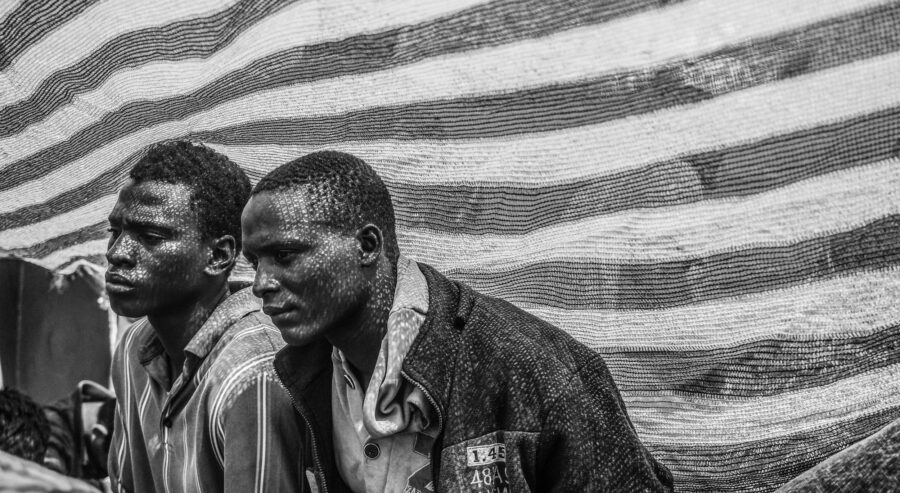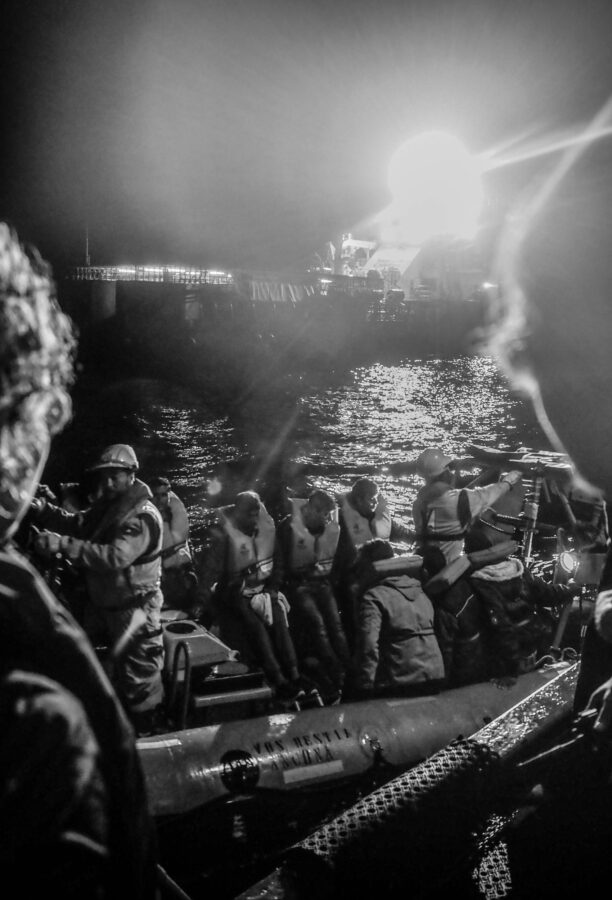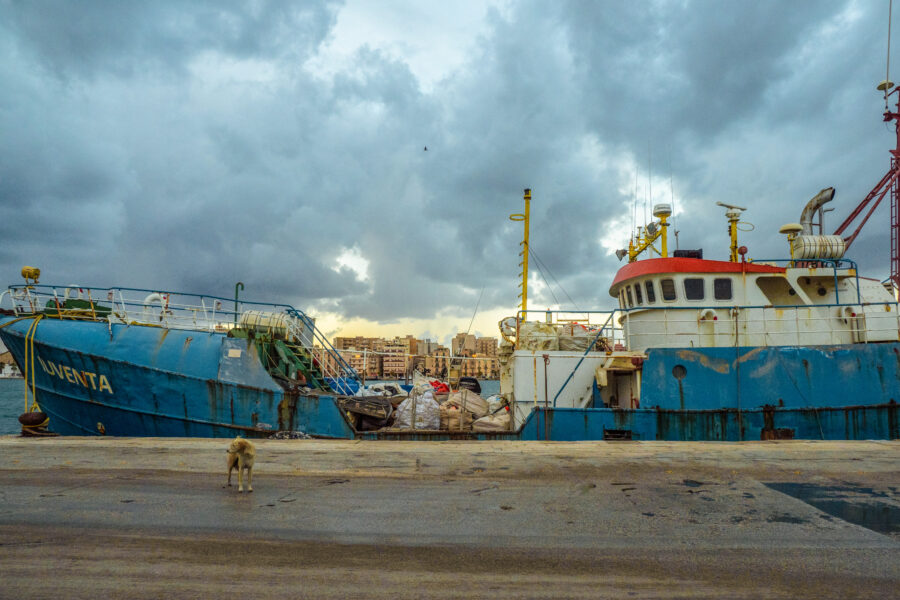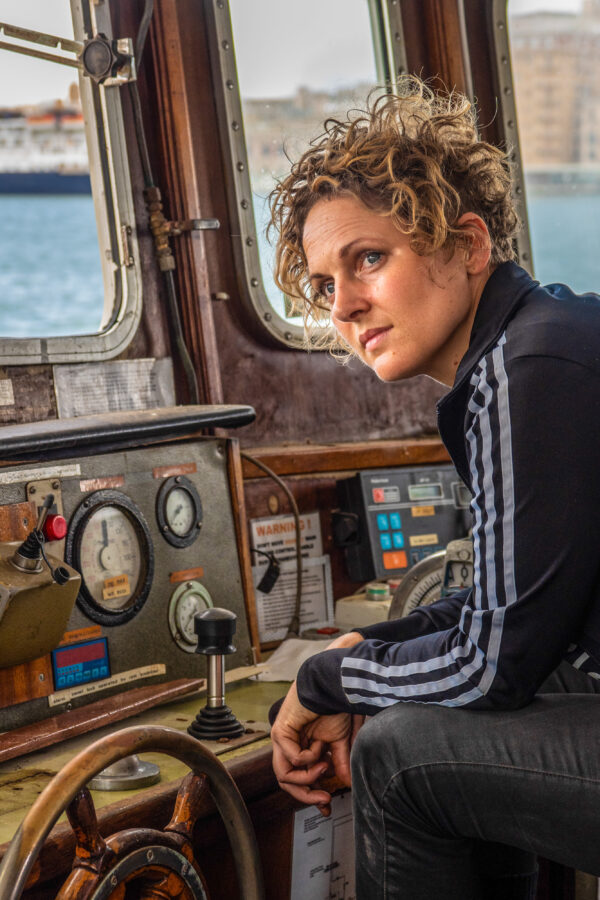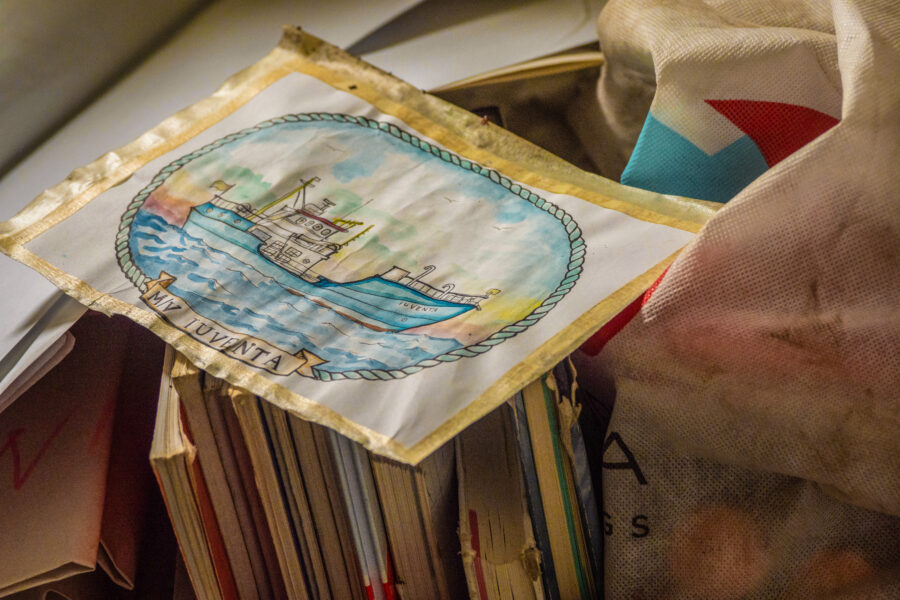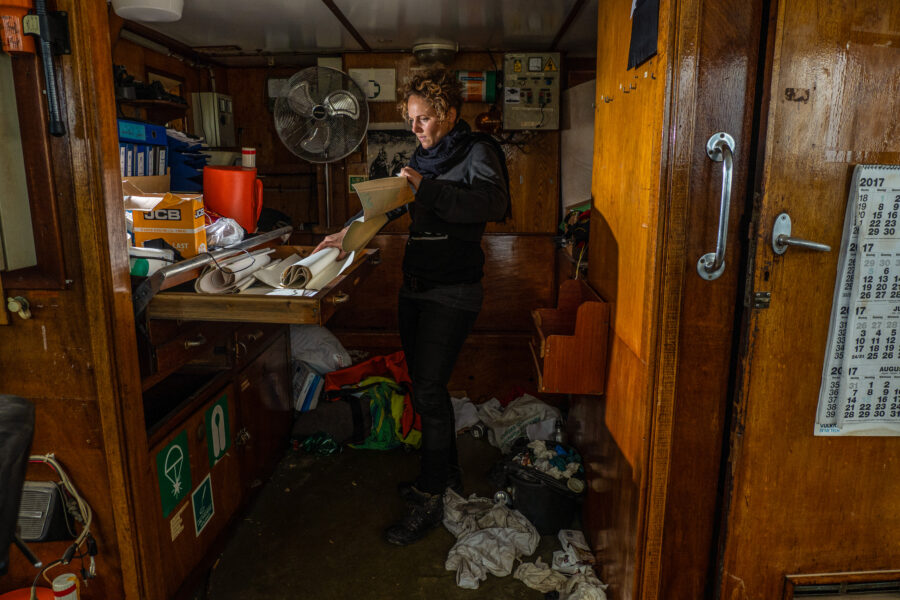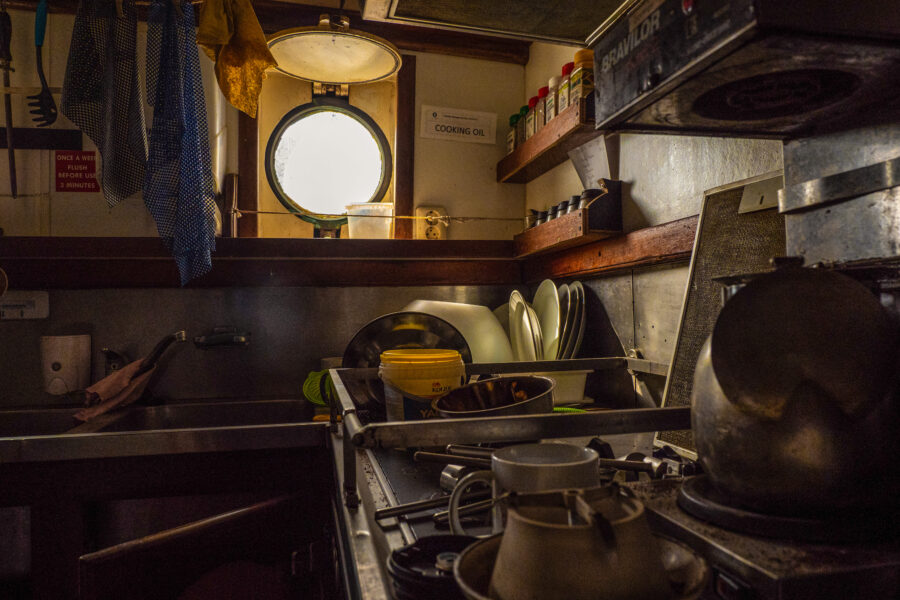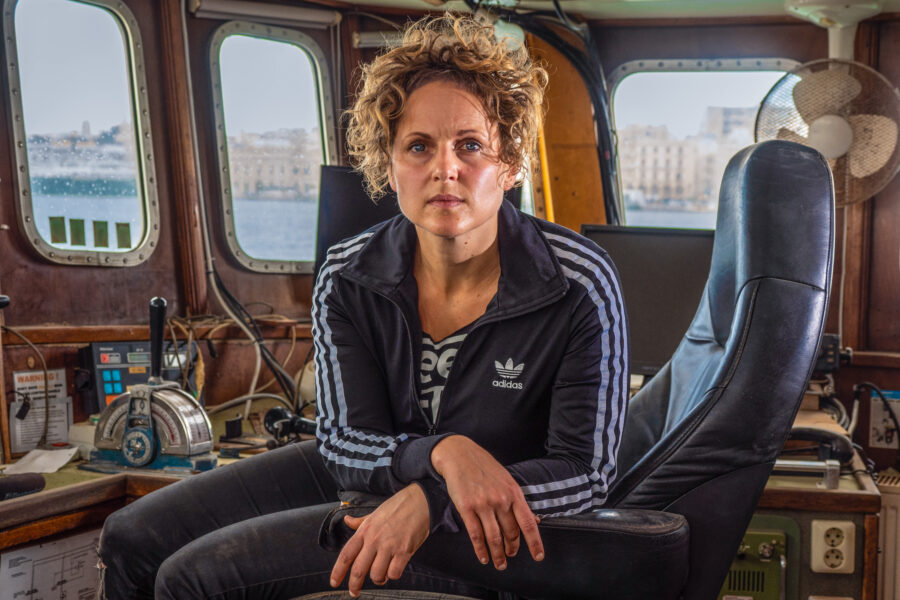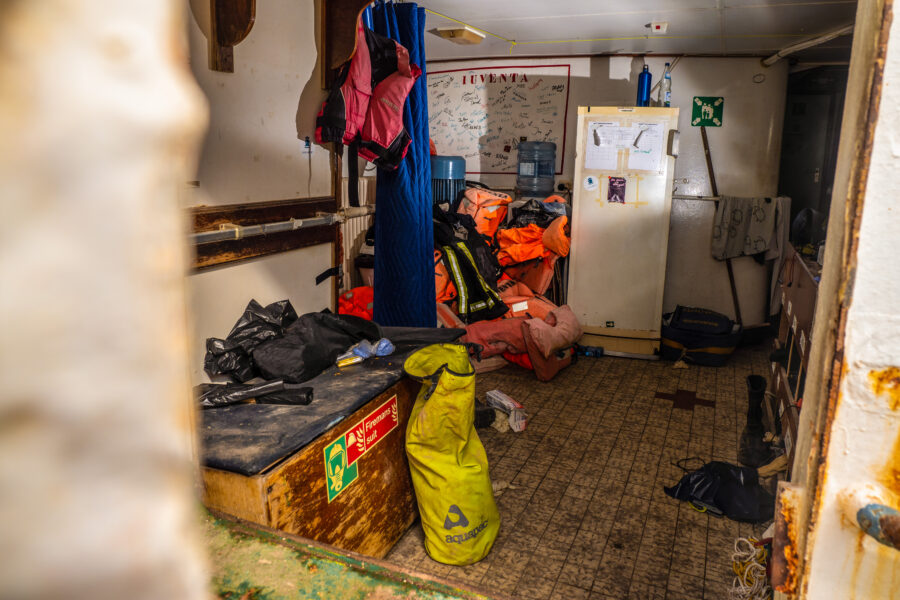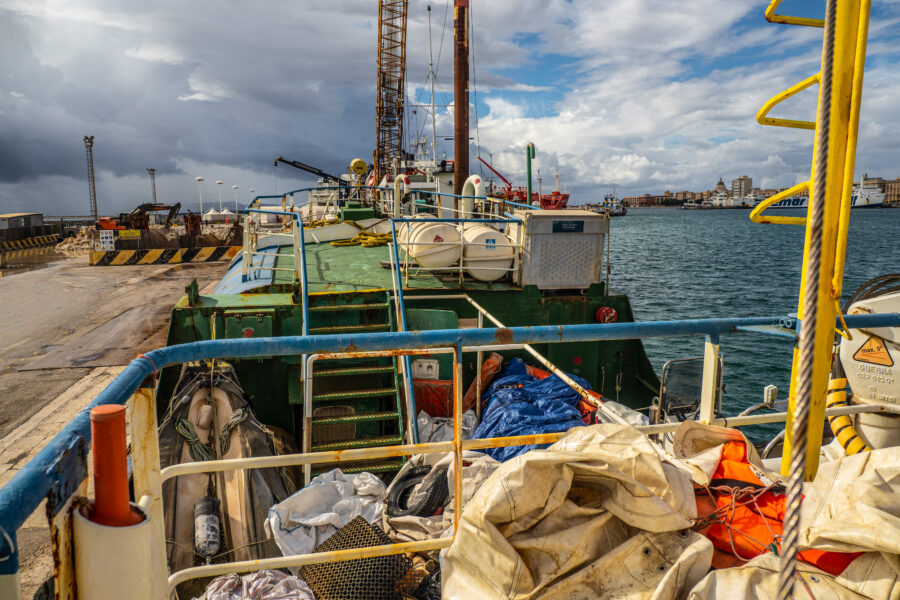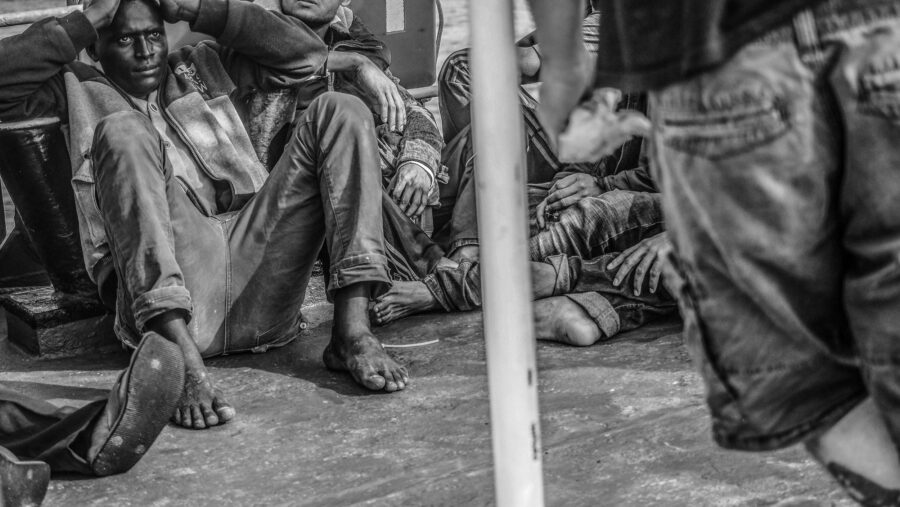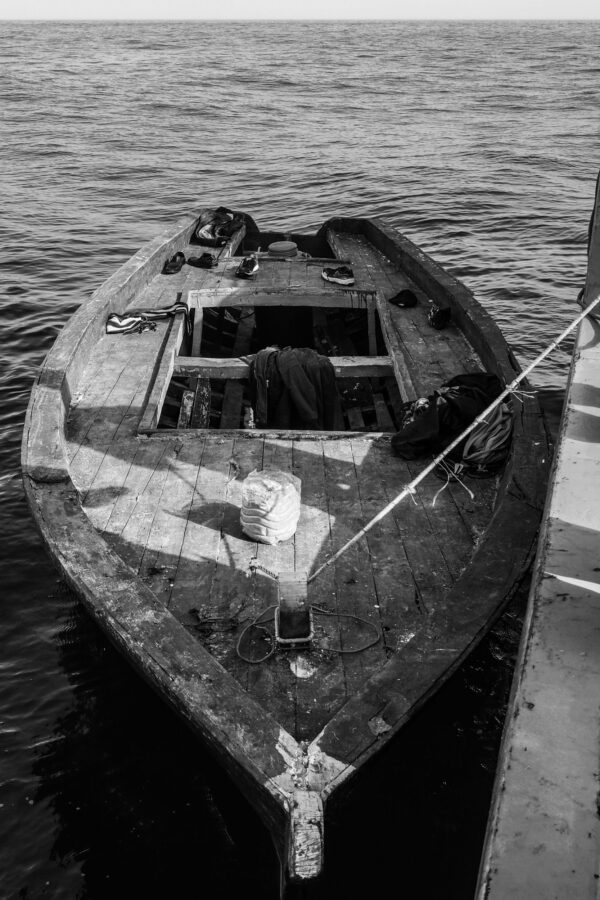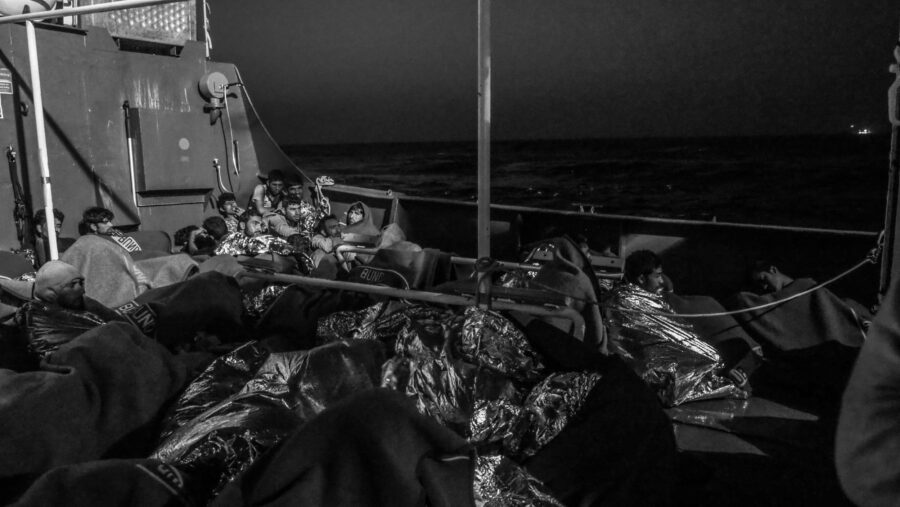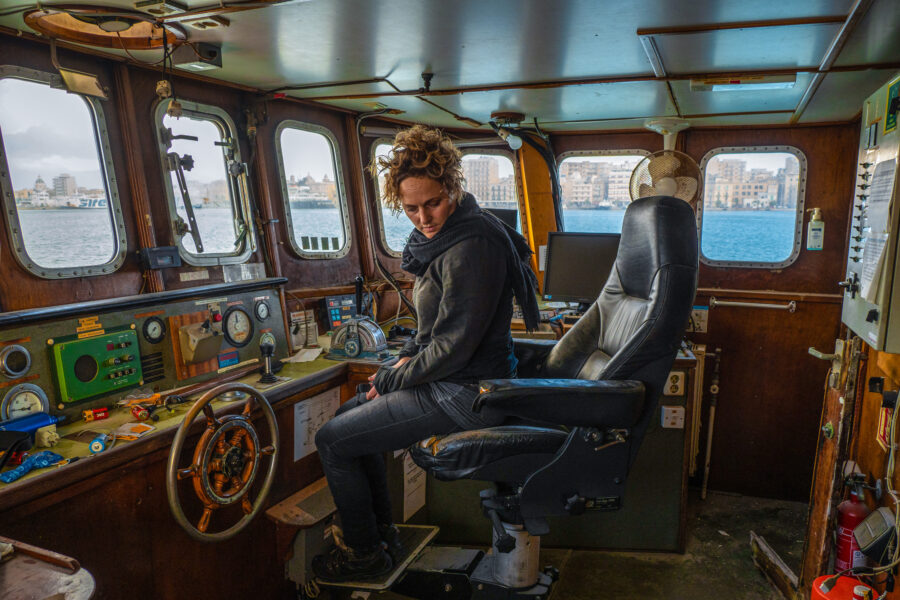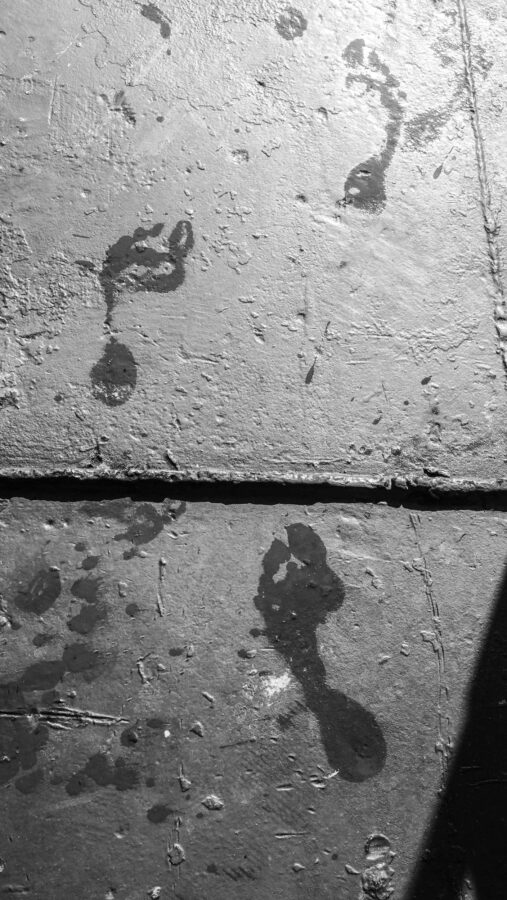Iuventa
Six years of criminalisation of migration and solidarity
The Mediterranean sea is today the deadliest border to Europe. European politicians are making unlawful deals that prevent people to seek asylum and force them back into detention centres in Libya. Since 1993, European migration policies have killed over 41.000 people: some drowned in the Mediterranean, others shot at the borders, many others left to die in deportation prisons, or tortured and killed after deportation. In 2021, 1.838 people have died or disappeared while trying to cross the Central Mediterranean sea, at the rate of 5 deaths per day.
Migration is heavily criminalised; while solidarity actions and civilian rescue operations are increasingly prosecuted in a European Union that in the imagination many people on the move means human rights, freedom, democracy. Until 2017, the NGOs operated in coordination with the Italian authorities. The Coast Guard would report dinghies in distress, authorise transhipments, indicate which ports to reach. Then things took a turn for the worse. The ‘code of conduct’ that the then Interior Minister Marco Minniti wanted to use to impose rules and forms of control insinuated the suspicion that there was something irregular in the rescues by civil organisations. In the background, prosecutors, institutional sources, newspapers and unknown bloggers pointed the finger at the NGOs, accusing them of collusion with traffickers or of being a pull factor. The migrant ‘pull factor’ theory had already been used against Mare Nostrum ships and was recycled in political arguments against humanitarian boats and civilian rescue operations. No one has ever been able to prove it.
After the political statements and media accusations, criminal investigations started. The first one, against the organisation Jugend Rettet, led to the seizure of the ship Iuventa in August 2017. Gradually, Sicilian prosecutors began targeting many other organisations. In the 20 or so criminal proceedings opened so fae, no one has ever been convicted. The offensive, however, has not stopped.
Despite the criminal investigations and administrative punishments that have never stopped over all these years, NGO activists and volunteers have not stopped taking risks and saving lives. Theirs is a direct action at once as simple as helping a stranger and as complicated as putting a ship at sea and going hundreds of kilometres away to break a dedly wall of silence.
The Iuventa, seized by the Italian authorities on the 2nd of August 2017, is still blocked in the port of Trapani, Sicily. The ship is rusting and decaying instead of saving human lives. Meanwhile, four crew members are facing trial in Italy for aiding and abetting illegal migration. If found guilty, they could face up to 20 years in prison.
On the 8th of December 2022, while with the new far-right government in Italy lead by Giorgia Meloni’s Fratelli D’Italia new seizures are starting to take place, the Iuventa, now reduced to a heap of wreckage after remaining five years under seizure in the port of Trapani, is to be restored to its original condition and maintained at state expense.
This is prescribed by an order of the Judge for Preliminary Investigations of the Court of Trapani, Samuele Corso, who – in response to the petition presented by the lawyer Leonardo Marino in the interest of the German NGO – invited the commander of the Trapani Harbour Master’s Office, as custodian of the ship, “to provide for the execution of all ordinary and extraordinary maintenance works necessary to restore and maintain the situation of the ship existing at the time of the seizure” occurred in August 2017.
The trial stemming from the investigation named after the seized ship, but also involving two other ships of MSF and Save the children that operated in the Mediterranean in the summer of 2016, continues with difficulty and after five years in which the ship remained under seizure, is still at the preliminary hearing stage. The preliminary hearing is paralysed due to procedural errors, unable to move forward due to the lack of interpreters capable of allowing defendants who do not speak and understand Italian to be questioned and follow the proceedings.
European deadly migration policies contribute to the ongoing rise of the death toll along Europe’s external borders, with at least 1.200 lives lost in 2022. Civilian efforts to act in solidarity with migrants and stop the loss of migrant lives continue, despite their ongoing criminalisation.
